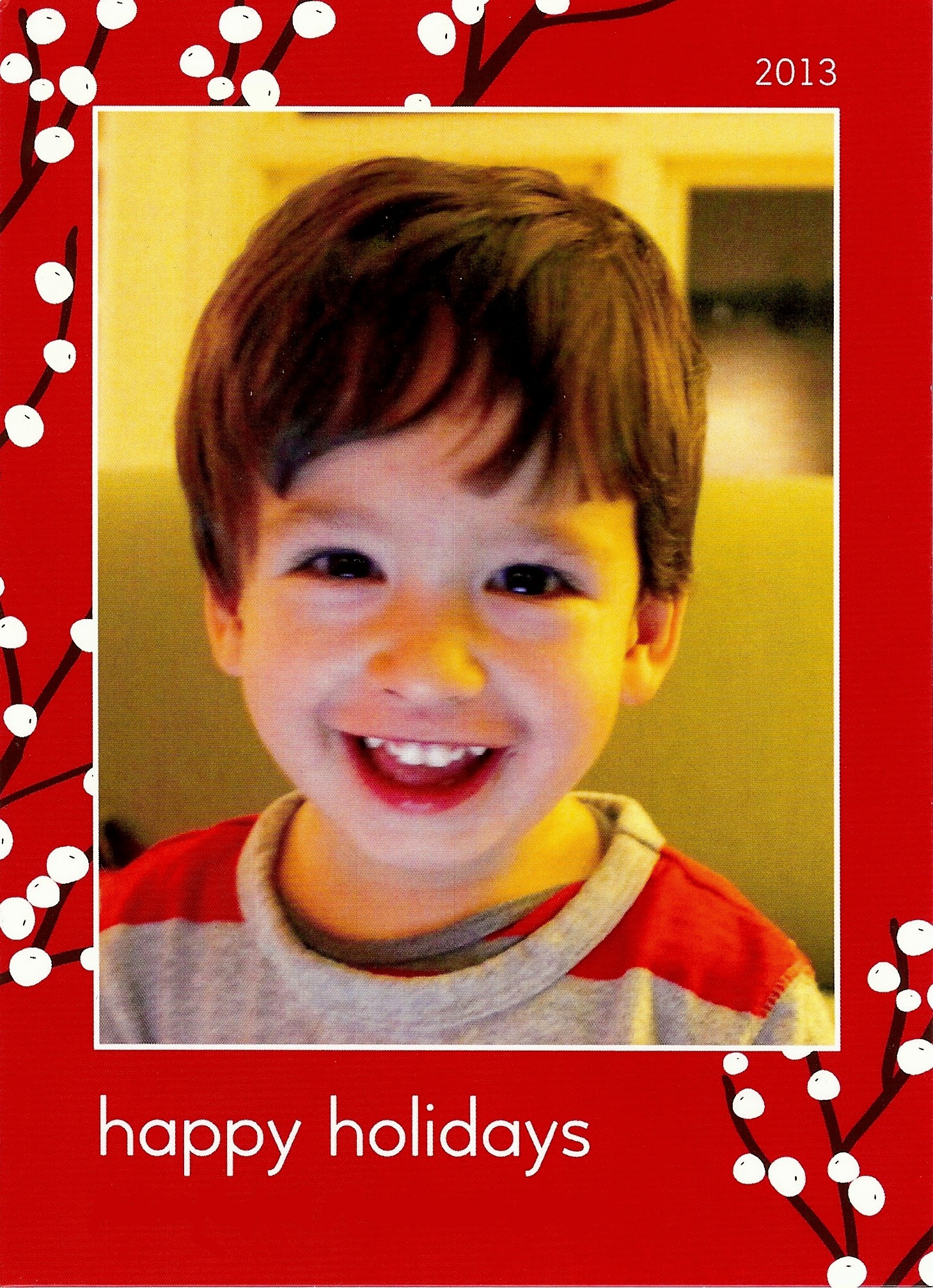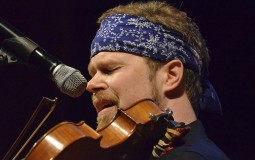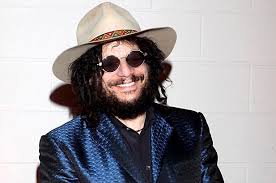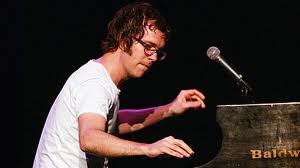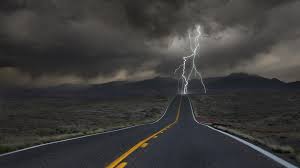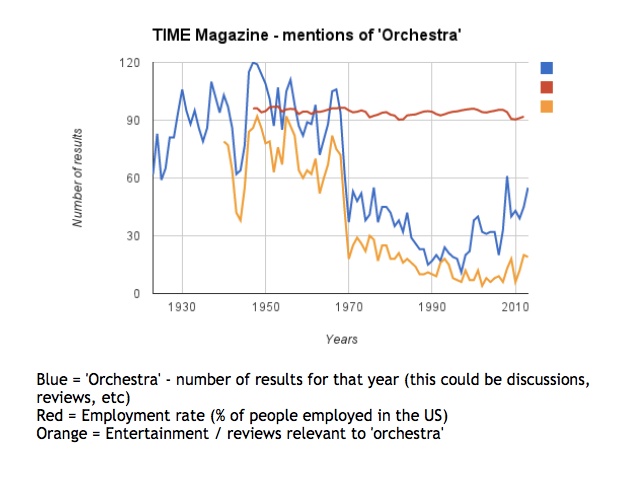My little son, two years old, was taking CDs off the shelf where we keep operas. Looking at each one, and handing it to me. One he took down was the old Joan Sutherland recording of Rossini’s Semiramide, with Marilyn Horne, and Richard Bonynge conducting, I don’t think I’ve heard it since it came out in 1966, when I'd eagerly awaited it — I was, and still am a big bel canto fan — but then was disappointed. Too many cuts, I thought. (I was a snob about cuts.) And apart from Sutherland and Horne the singers weren't great. Even Sutherland … [Read more...]
With best holiday wishes!
To everyone who reads the blog, everyone who comments, all our guest bloggers, anyone who happens to see this — my best wishes for a warm and happy holiday season, and a terrific 2014. Changes have been gathering force in classical music, and I hope we'll all track them here, with hope and joy. My warmest thanks to everyone in this blog community, and everyone working for classical music's rebirth. We're all in this together, and together we can work miracles. I'm grateful to all of you. … [Read more...]
Brush the issues aside
Here's a thought from my friend and Juilliard colleague David Wallace, a violist, composer, teaching artist, and — as Doc Wallace — a Texas fiddler. And much, much more. His subject? All the issues he, I, and so many others thrash out, about classical music, its problems, its future, its place in our culture. Everything discussed in my blog. At some point…but let David tell it: At some point, self-marketing that surfs the "What's wrong about classical music wave, and why I'm not that" is going tobe blown away by marketing that simply … [Read more...]
American Voices, footnotes and letdown
Followup to my post on Renée Fleming's American Voices festival at the Kennedy Center (which featured classical, pop, jazz, country, Broadway, and gospel singing): Pop, jazz, and classical singers have some of the same problems. As I said in my previous post, I couldn't attend the masterclass for classical singers, which Eric Owens taught. But Anne (Anne Midgette, my wife, who did attend, and reviewed the festival for the Washington Post) said he told the students not to pump out a big operatic sound, but instead to build meaning from the … [Read more...]
The walls are coming down
That's a phrase you might have seen me use, when I've talked about closing the gap between classical music and the rest of our culture. But the person who said those words at the Kennedy Center in Washington the weekend before Thanksgiving ago wasn't me. It was Renée Fleming, who of course is one of the most famous classical musicians alive, and who's knocked down walls herself by recording albums of jazz (here, here) and even indie rock. She used the phrase at the Kennedy Center because she was knocking walls down again, this time by … [Read more...]
Amateur work
On Facebook and Twitter I’ve been talking about bad graphic design in classical music. Why does bad design matter? Because we need a new audience. Our new audience comes — will come — from the outside world, where good design is everywhere, taken for granted when you’re dealing with professionals. If we can’t match that, we look like we don't function in the real word. That we're not professional. That what we do can't be very good. Which, to put it mildly, isn’t in our interest. I'll give an example -- the Kennedy Center program book. Not … [Read more...]
Instead of a press release…
A colleague teaching an entrepreneurship course at a major music school emailed this question: I’m planning my entrepreneurship class for the spring and I used to have an exercise (using your blog actually) that required students to write a press release. This now seems kind of futile to me, since press releases, well, they are so analogue. Do you have any ideas about what I could replace this with? I like the notion of students having to publicize (and articulate) their projects. Blog post? Personal letter? Here's how I answered: You're … [Read more...]
Again, where’s Greg?
It's been liberating, I have to confess — not writing the blog for a bit, while I keep up my intense travel schedule. New York (from Washington) every week, and then, from the second week in October, a trip to DePauw University to continue my work with the music school there, a trip to Dubuque to help a community music school evolve a strategic plan. And then Boston to speak (twice) at a conference (and serve on a panel). And last week DePauw again, and this week Los Angeles. There I'll be joining Doug McLennan, founder of ArtsJournal and my … [Read more...]
Where’s Greg?
I've been dashing about. Two weeks ago — and twice since the start of September — I've been at the DePauw University School of Music, plunging into my intensive consultantcy, working with faculty, students, and the dean to help define the school's radical new curriculum. And last week I was in Dubuque, IA, helping the Northeast Iowa School of Music — a spirited community music school — evolve a strategic plan for future growth. This turned out to be as gratifying as my DePauw work. They're terrific people in Dubuque, and to judge from the … [Read more...]
Monday post — recanted rant
From the New York Times Book Review a week ago, a Q&A with Scott Turow: What was the last truly great book you read? When I noticed that Patti Smith’s “Just Kids” had won the National Book Award for nonfiction in 2010, I ranted about contemporary culture, so celebrity-besotted that we were now giving vaunted literary prizes to rock stars. Then I read the book. It is profound and unique, a perfectly wrought account of what it means to give your life to art and to another person. I expect it to be read with wonder for a long … [Read more...]
Timeline of the crisis
Here — to end my posts on the dates of the classical music crisis — is a detailed crisis timeline. The information in it comes from many sources, including published reports, blog comments by people who saw the crisis develop in their professional work, and my own experience. Nobody should think this timeline is anything but tentative. It's just a beginning of the timeline we could eventually construct, with more data and more reports from people in the middle of it all. And this timeline, tentative as it is, has some obvious weaknesses. … [Read more...]
Timeline of the crisis (2)
The first of my timeline posts offered two snapshots of classical music coverage in Time magazine — which declined (a lot) in recent decades. That shows us classical music receding from mainstream culture. Or mainstream culture moving away from classical music. Now, in my second timeline post, I'll quote an overview of the crisis from Ron Nadel, who posted it as a comment to the first of the posts I've been doing on the classical music crisis, the one where I asked how long the crisis has been going on. Note that it's based on his own … [Read more...]
Timeline of the crisis (1)
I'm continuing my posts about the classical music crisis, and I'm coming now to the crisis timeline, which will how and when the crisis developed, decade by decade. I started these posts by asking when the crisis began. Here are some answers, in three parts. First, two snapshots. Then, tomorrow, a savvy overview, written as a comment to my original post. And on Thursday a detailed timeline. Two snapshots. First: a graph showing mentions of the word "orchestra," tracked year by year through every issue of Time magazine from its founding in … [Read more...]
Monday post — Philadelphia fun
Many of us know that the Philadelphia Orchestra couldn't kick off Carnegie Hall's season, as planned, because of a brief strike by Carnegie's stagehands. Their concert was cancelled. So what did they do? They gave a free concert -- dressed in colorful, informal clothes — in their hall in Philadelphia. 2200 people showed up. And clearly had fun. Before the concert, there was a conducting competition. For members of the audience. A nine year-old won, and -- what a prize for a contest winner — conducted the orchestra in the end of … [Read more...]
Revolution at DePauw
I've mentioned here and on Facebook a consulting job I said I couldn't talk about, because the project it's part of hadn't been made public. But now that project has been announced, so here's the news. The DePauw University School of Music is revolutionizing its curriculum — I don't think that's too strong — to focus on training what it calls 21st century musicians. Which means musicians who make careers in new ways, give new kinds of classical performances, and find new audiences. Other schools, of course, have entrepreneurship programs, … [Read more...]


